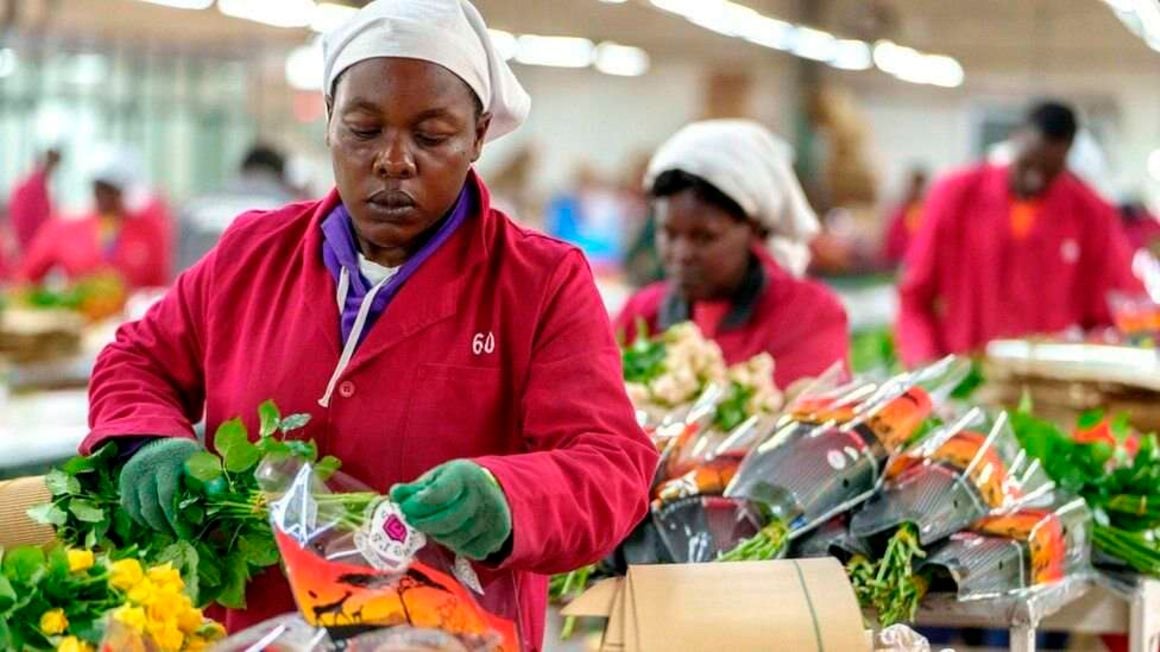Kenyan exporters earn billions in exchange gains in Q3

Kenyan exporters have booked billions of shillings in exchange gains from a weaker shilling as the Central Bank of Kenya’s decision to let the exchange rate act as a shock absorber began to pay off.
Compared to the third quarter of 2021, export earnings on tea, coffee, titanium, textiles and horticulture in the period between July and September last year rose faster than their corresponding quantities, helping the country to narrow the growing trade deficit as a result of a weaker Shilling.
Data from the Kenya National Bureau of Statistics (KNBS) shows that tea, Kenya’s main foreign exchange earner, had the biggest variation with the value of exports increasing by 45.5 per cent to Sh40.3 billion against an increase of 9.8 per cent in the quantity of the leaves.
In the third quarter of last year, Kenya exported 137,111.30 tonnes of the leaf to such countries as Pakistan, Egypt, the United Kingdom and the United Arab Emirates.
However, in the third quarter of 2021, the country exported 124,881 tonnes of tea earning itself Sh27.7 billion and helping replenish the country’s stockpile of dollars which has been dwindling due to the war in Ukraine, Covid-19 and the hike in interest rates by Central Banks in developed countries.
Textile—which Kenya exports mainly to the United States— had the second largest variation, with the country raking in Sh1.93 billion after shipping out 9,120.2 tonnes.
In the same period in 2021, export earnings from 7,829.30 tonnes of textile were Sh1.4 billion, resulting in a growth of 36.9 per cent in the value of exports compared to 16.5 per cent in quantity.
In the same period, Kenya exported 11,572.7 tonnes of coffee raking in Sh8.7 billion for the country.
This represented a growth of 68.2 per cent in the value of exported coffee from Sh5.2 billion in the third quarter of 2021, while the quantity grew by 50.6 per cent from 7,686.7 tonnes.
Around 82,828 tonnes of titanium ores and concentrates earned the country Sh5.8 billion in foreign exchange earnings, an increase of 28.1 per cent that was gained in the three months to September 2021.
During the review period, total exports increased by 29.7 per cent to Sh227.8 billion while imports increased by 22.2 per cent to Sh661.8 billion, with the national statistician attributing the increase to mainly tea.
Nonetheless, the country’s trade deficit—the difference between imports and exports—widened to Sh434 billion from a deficit of Sh366.1 billion recorded in the third quarter of 2021 due to an increase in the import bill of petroleum and chemical fertilisers.
“The growth in import bill was largely driven by a significant increase in imports of petroleum products, which more than doubled from Sh82.3 billion in the third quarter of 2021 to Sh182.6 billion in the third quarter of 2022,” said KNBS.
In light of the depreciation of the Shilling, CBK has largely resisted calls to strongly get into the market by selling dollars to forex traders, with the apex bank maintaining that it would like to have a flexible exchange rate to be used as a shock absorber.
Allowing the Shilling to weaken will boost the country’s export earnings while making imports expensive.
The Shilling hit historic lows in 2022.
By December 28, the currency had shed 8.9 per cent of its value, translating to 10.12 units against the dollar to exchange at 123.26 from 113.14 in January.

